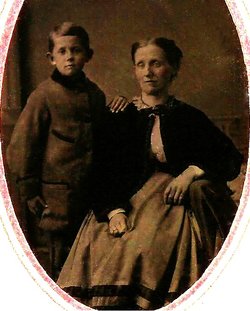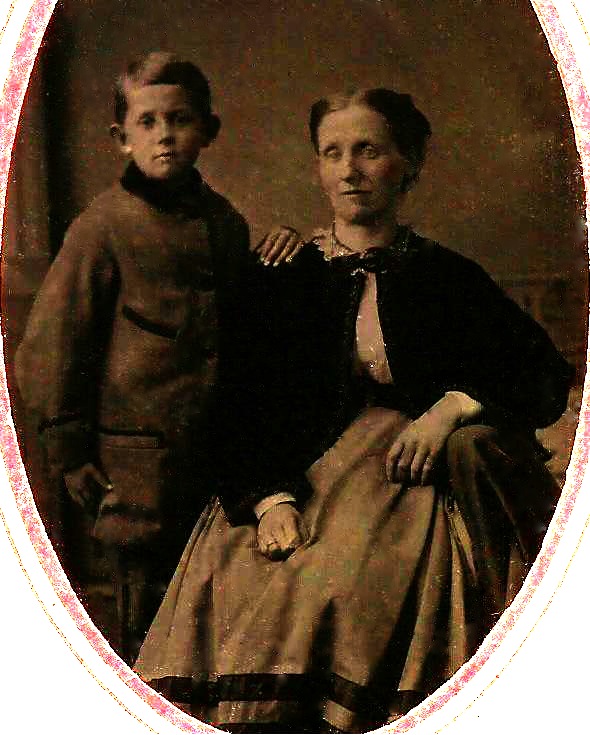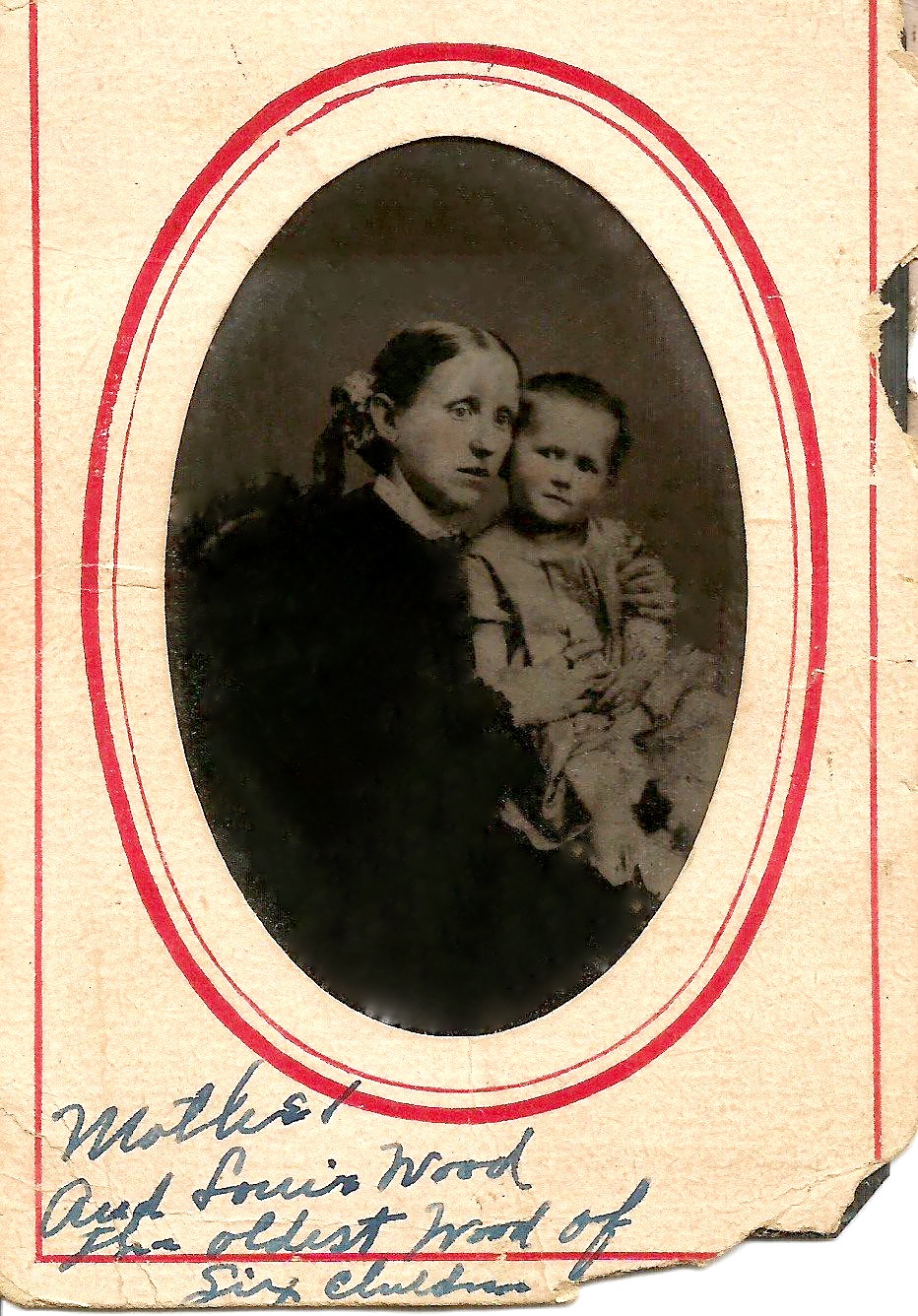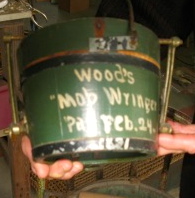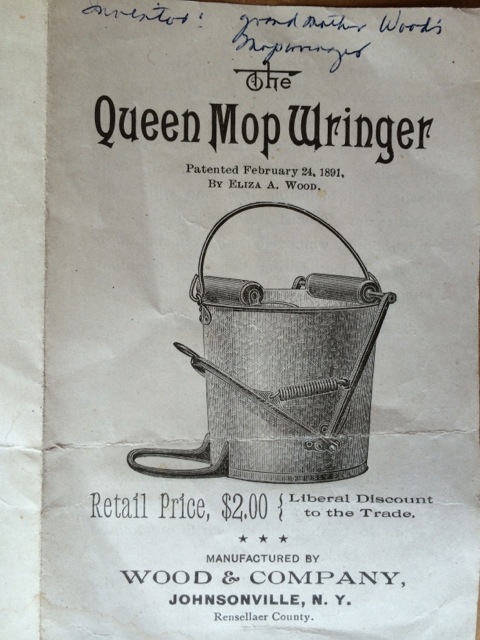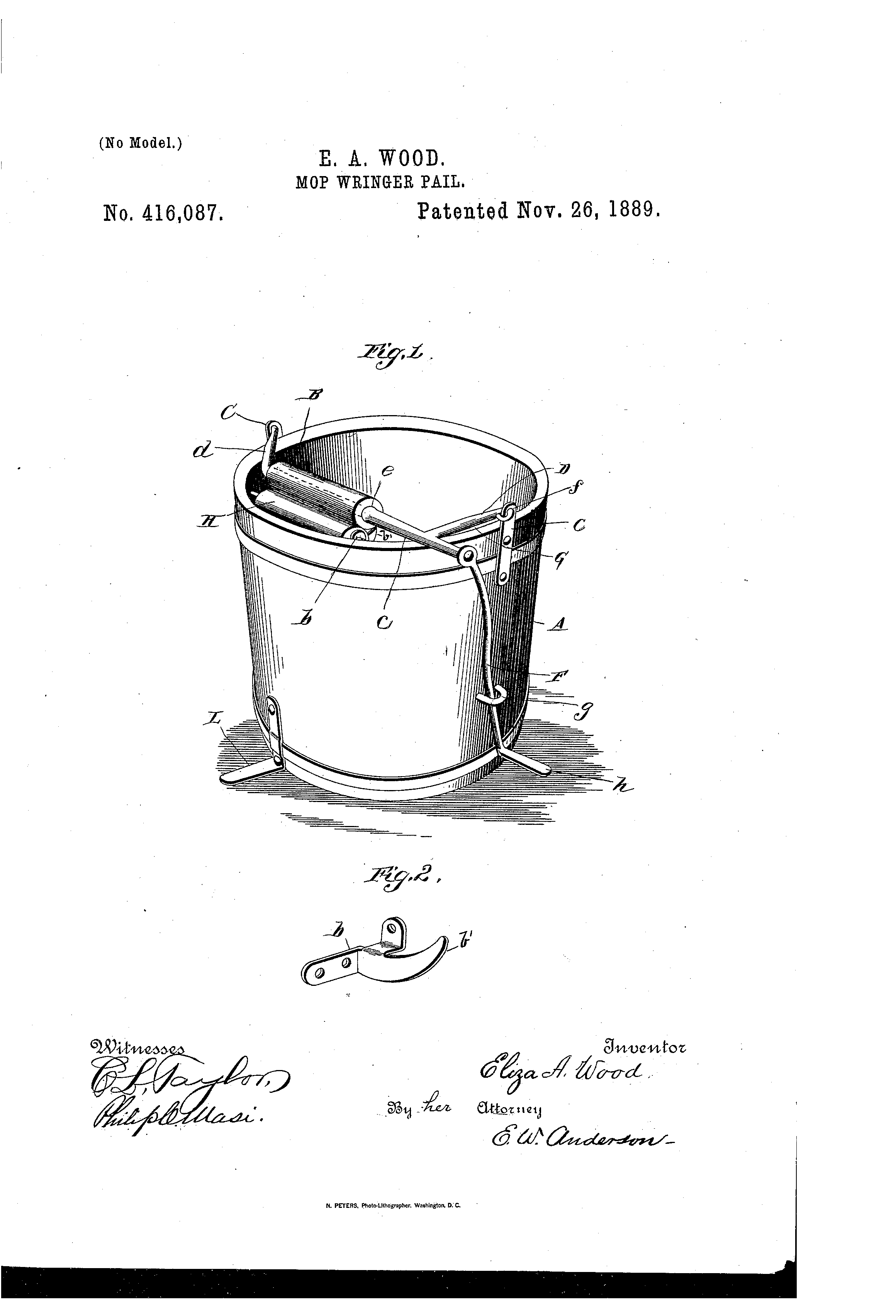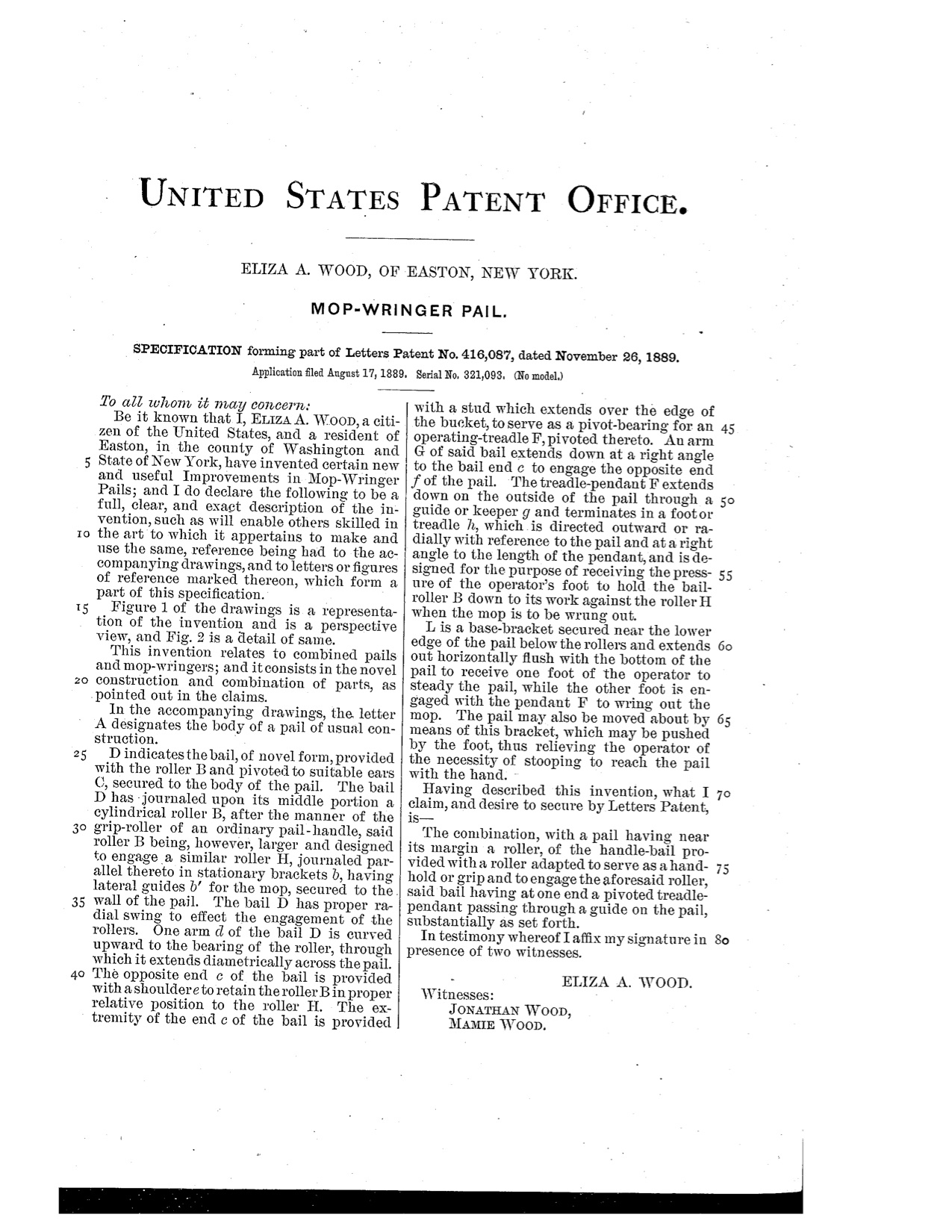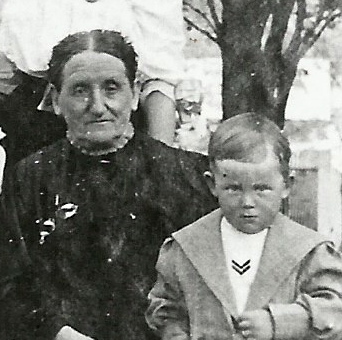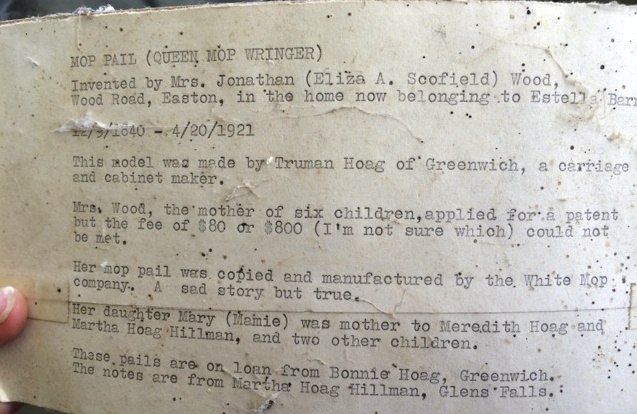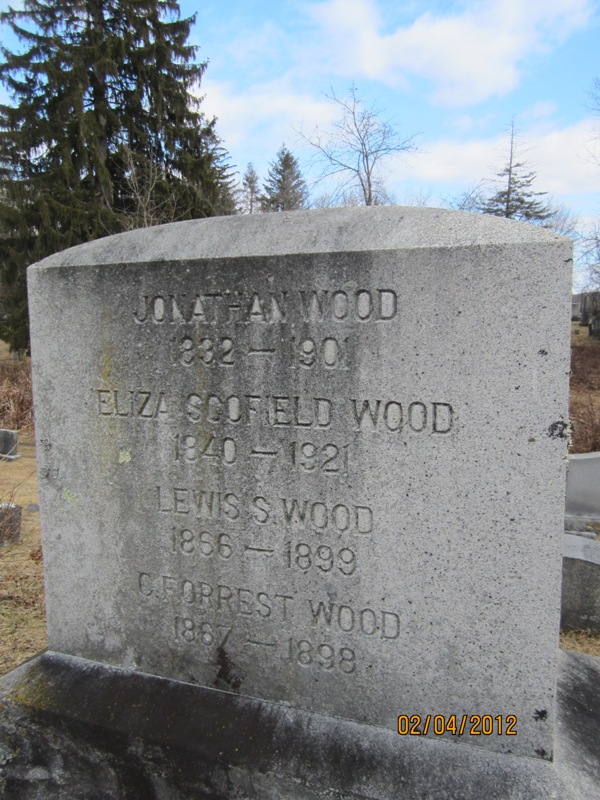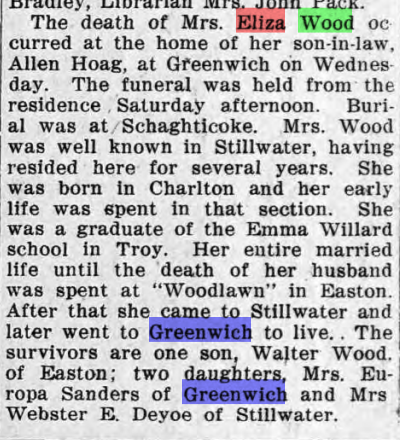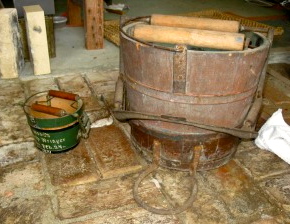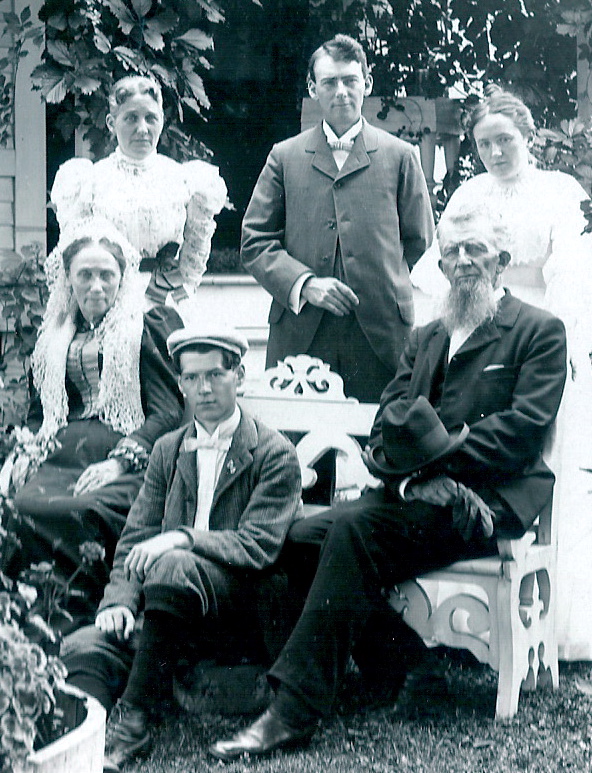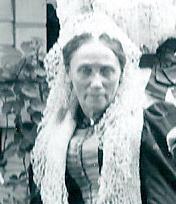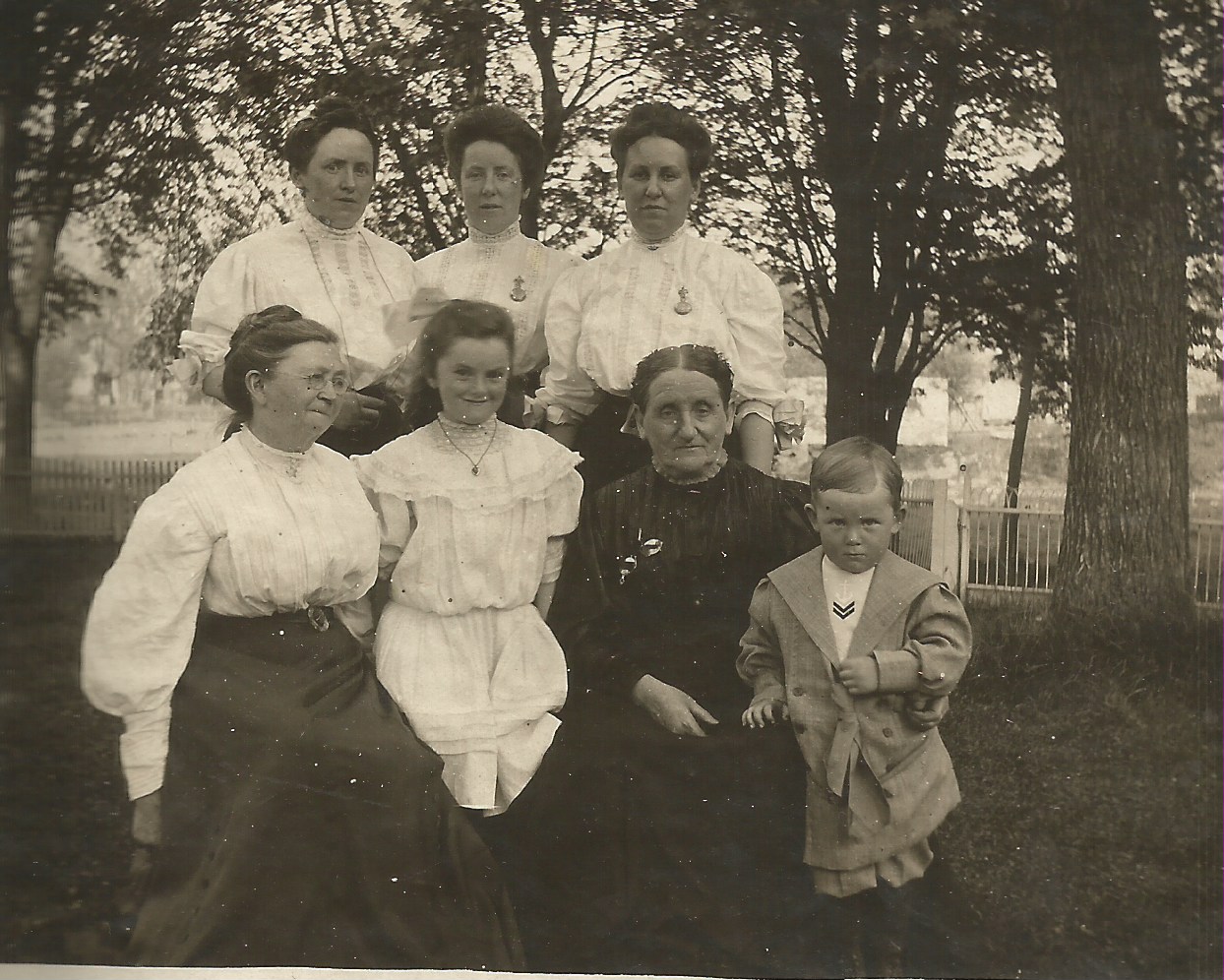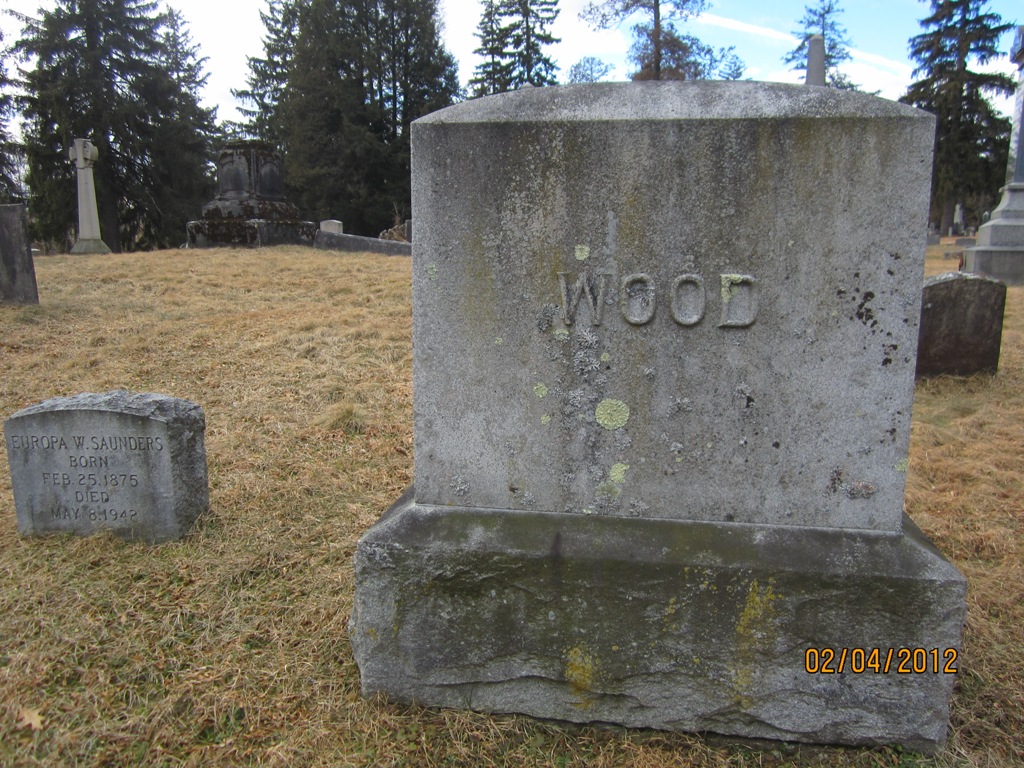Eliza's husband, Jonathan Wood (1832-1901), was her first cousin as they shared the same grandparents, Daniel and Mary Salisbury Wood.
Eliza and Jonathan's children were: Lewis W (1866-1899); Charles Forrest (1868- ); Walter A (1870-1954); Mary Scofield "Mamie" (1872-1914); Europa G (1875-1942); Annie Laurie (1877-1958)
Eliza Scofield Wood was the inventor of the wring mop bucket, for which she submitted two patents, in 1889 and 1891. (See photos) She and her husband Jonathan were farmers in Easton, Washington County, NY. After Jonathan Wood's death in 1901, Eliza moved into her daughter's (Mamie) home in Easton, NY, with their extended family, including Mamie's in-laws; Jonathan E. Hoag and his wife Lydia Dwelle Hoag.
Here is a poem written by Jonathan E. Hoag, two days after Eliza's death. The poem is especially poignant in the 5th stanza, referring to daughter Mamie's early death seven years prior. "Was she waiting..."
To Grandmother (Mrs. Eliza A. Wood)
"Grandmother, why didn't you tell us
You were going to sail for afar,
Stealing silently out of the harbor,
By the light of the first morning star?
We were sleeping so deep when you left us,
In the watches unlighted and gray;
And you didn't call out to your babies,
As you drifted so quickly away.
How swift we'd have risen to join you,
Had you wakened us, grandmother dear;
Hand in hand we'd have walked through the twilight,
Close beside you with carols of cheer.
Once you said to us - do you remember?
That when come day your journey would come,
Two white hands would be beckoning gently,
And guiding you safe to your home.
Was she waiting - the daughter you cherished,
The mother we scarce can recall,
Where the bark lay at anchor to bear you
O'er the sea from earth's trouble and thrall?
Now we miss the first faltering footsteps,
That lately we heard on the stair;
And with sighs view the seat by the window,
Dear to one who no longer is there.
We look sadly at each threaded needle,
At the empty chair close by the stand;
At thimble and shears idly resting,
That once moved in a deft, busy hand.
When we speak, you no longer can answer,
And we scarce know the sad reason why;
But we feel the hot tears that come trickling,
As our lonely hearts yearningly cry.
Cold and pulseless the hand we are touching,
Still and lifeless the cheek that we press;
But around us the spirit forever
Will linger, to guard and caress! "
April 21, 1921
(Bio by Great Granddaughter Caroline Hoag. I wish I could ask Eliza why her middle name is Anderson? Was that her Grandmother's maiden name?)
Eliza's husband, Jonathan Wood (1832-1901), was her first cousin as they shared the same grandparents, Daniel and Mary Salisbury Wood.
Eliza and Jonathan's children were: Lewis W (1866-1899); Charles Forrest (1868- ); Walter A (1870-1954); Mary Scofield "Mamie" (1872-1914); Europa G (1875-1942); Annie Laurie (1877-1958)
Eliza Scofield Wood was the inventor of the wring mop bucket, for which she submitted two patents, in 1889 and 1891. (See photos) She and her husband Jonathan were farmers in Easton, Washington County, NY. After Jonathan Wood's death in 1901, Eliza moved into her daughter's (Mamie) home in Easton, NY, with their extended family, including Mamie's in-laws; Jonathan E. Hoag and his wife Lydia Dwelle Hoag.
Here is a poem written by Jonathan E. Hoag, two days after Eliza's death. The poem is especially poignant in the 5th stanza, referring to daughter Mamie's early death seven years prior. "Was she waiting..."
To Grandmother (Mrs. Eliza A. Wood)
"Grandmother, why didn't you tell us
You were going to sail for afar,
Stealing silently out of the harbor,
By the light of the first morning star?
We were sleeping so deep when you left us,
In the watches unlighted and gray;
And you didn't call out to your babies,
As you drifted so quickly away.
How swift we'd have risen to join you,
Had you wakened us, grandmother dear;
Hand in hand we'd have walked through the twilight,
Close beside you with carols of cheer.
Once you said to us - do you remember?
That when come day your journey would come,
Two white hands would be beckoning gently,
And guiding you safe to your home.
Was she waiting - the daughter you cherished,
The mother we scarce can recall,
Where the bark lay at anchor to bear you
O'er the sea from earth's trouble and thrall?
Now we miss the first faltering footsteps,
That lately we heard on the stair;
And with sighs view the seat by the window,
Dear to one who no longer is there.
We look sadly at each threaded needle,
At the empty chair close by the stand;
At thimble and shears idly resting,
That once moved in a deft, busy hand.
When we speak, you no longer can answer,
And we scarce know the sad reason why;
But we feel the hot tears that come trickling,
As our lonely hearts yearningly cry.
Cold and pulseless the hand we are touching,
Still and lifeless the cheek that we press;
But around us the spirit forever
Will linger, to guard and caress! "
April 21, 1921
(Bio by Great Granddaughter Caroline Hoag. I wish I could ask Eliza why her middle name is Anderson? Was that her Grandmother's maiden name?)
